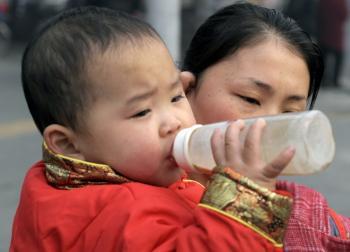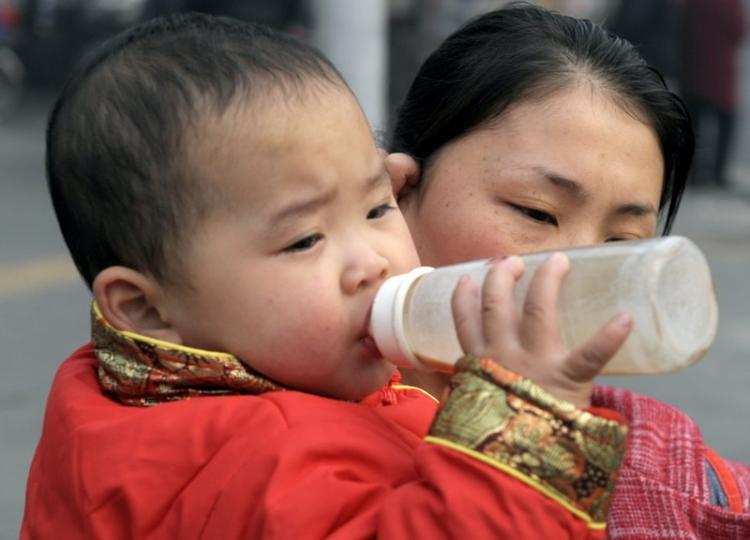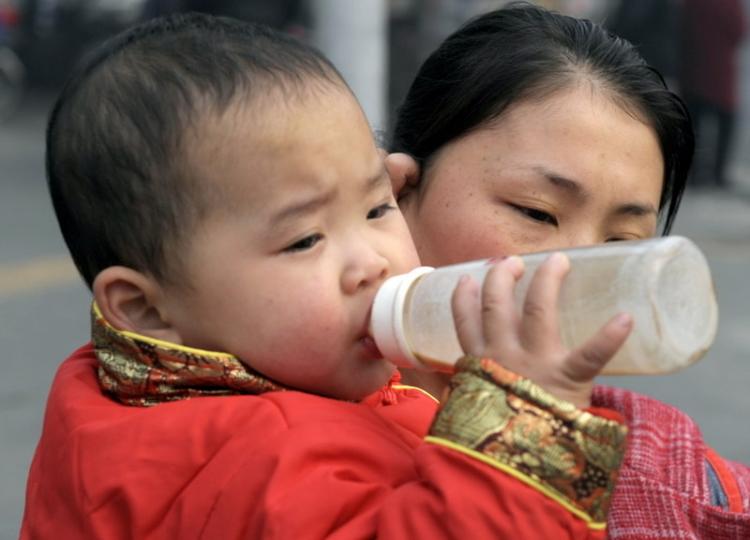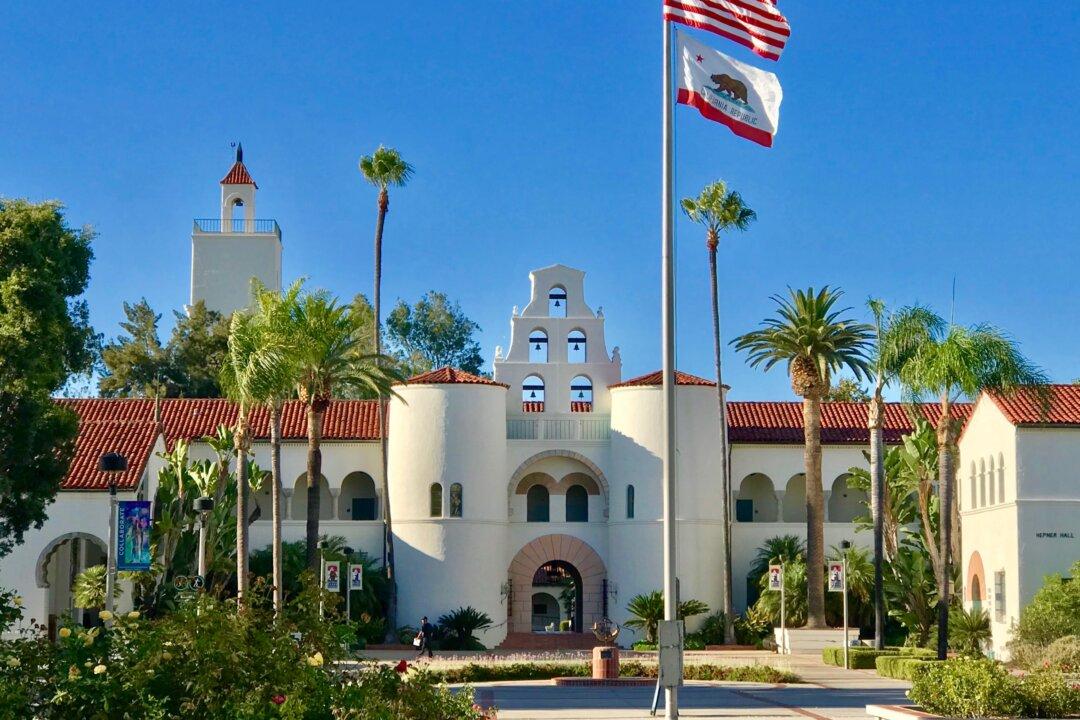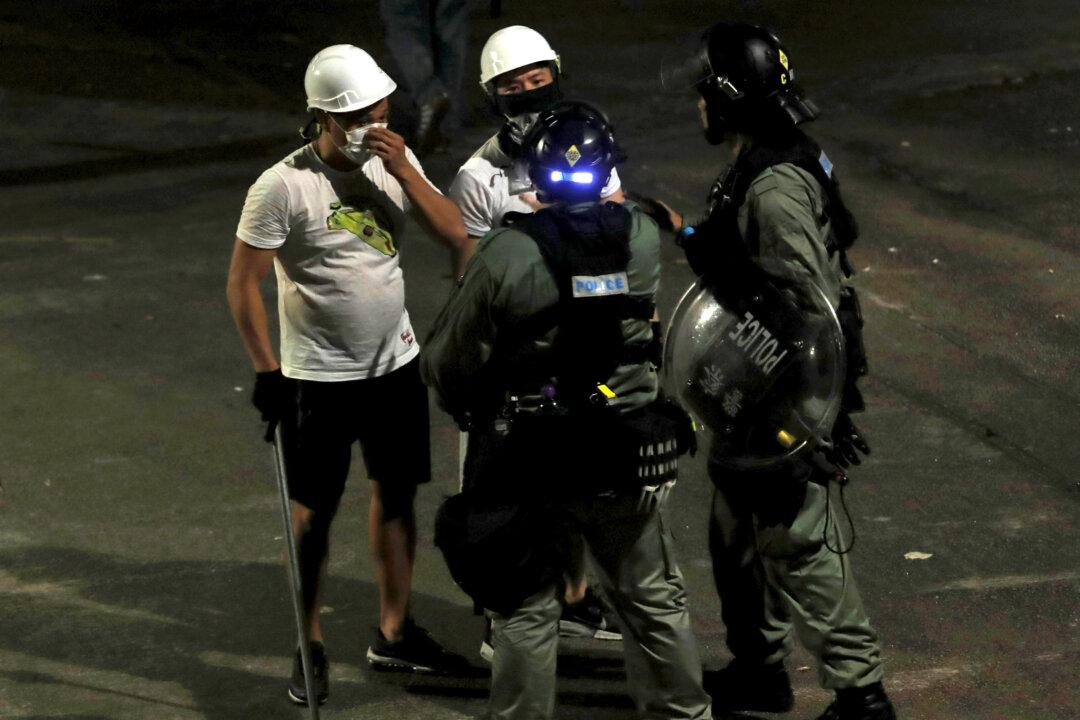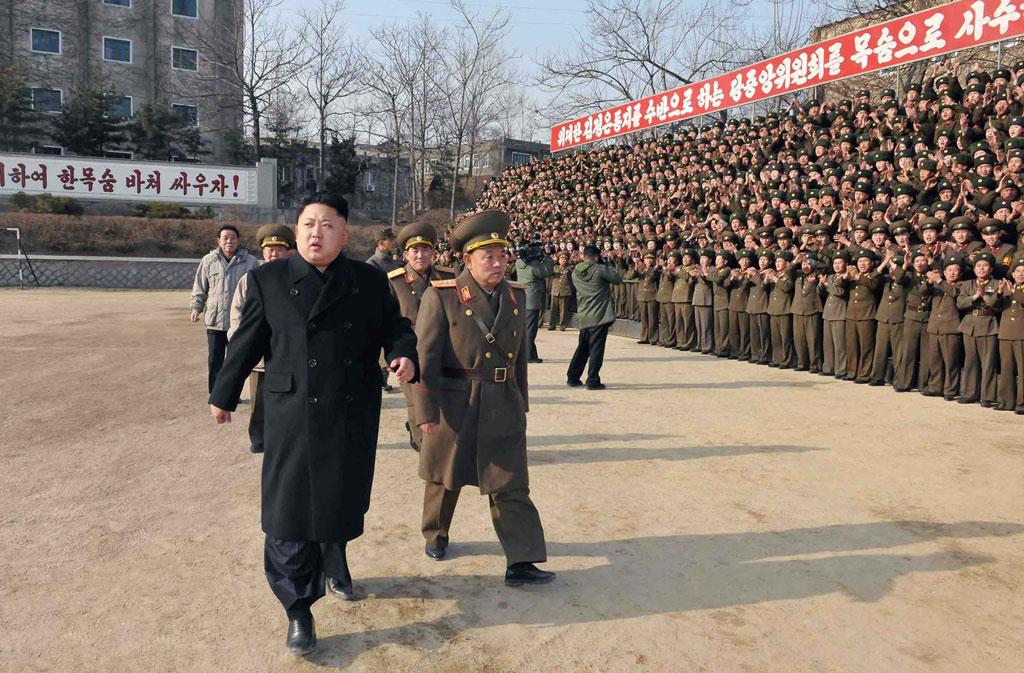For years Chinese dairy producers have been making trips to the local tannery, collecting the chemical scraps left over from the leather softening process, putting it into milk, and thereby boosting the milk’s protein content as measured in tests.
But the chemicals they are adding—hydrolyzed leather proteins, sodium and potassium dichromate, the chemical hexavalent chromium (CrVI)—cause cancer.
The toxic milk has been dubbed “leather milk.” The most vulnerable victims are infants.
The issue had been reported as early as 2005, but recent reports in the Chinese media, along with high-profile denials by the Communist Party that there were any problems, brought it to light again.
Zhejiang Metropolitan Daily reported that five out of eight batches of dairy drinks from Chenyuan Dairy Co., Ltd. in Jinhua City, Zhejiang Province, contained high levels of hydrolyzed protein from leather. Additionally, six batches of products sold to Longyou, Haining, and Jiashan markets all contained hydrolyzed leather proteins.
Hong Kong’s Wenweipo reported as early as 2005 that at least 200 diary factories in Shandong Province added leather hydrolyzed protein to their products.
Xinhua reported in July 2005 that in Shanxi Province, artificial milk was made out of materials that have nothing to do with real milk, such as synthetic flavoring, protein hydrolysate, and additives. Such artificial milk was then sold under famous brand names.
In March 2009 a site inspection of Chenyuan Diary Co., Ltd. revealed three 20 kg bags of leather hydrolyzed protein, along with 1,300 boxes of tainted dairy products. Similar cases were also reported in Shandong, Shanxi, Hebei provinces.
China State Council Food Safety Administration issued a notice on Feb. 13 that since July 2010 they have uncovered 40 illegal dairy product manufacturing and sales facilities. A total of 2,131 tons of tainted milk powder were confiscated.
Wang Xiaofeng, a Beijing food inspection expert, said it is more difficult to detect leather hydrolyzed protein than melamine, because it is a type of protein itself. The inspection method devised by the Ministry of Agriculture checks if hydroxyproline, a type of hydrolyzed animal collagen, is contained in the dairy products. If so, it can be inferred that the product contains leather hydrolyzed protein.
Social System Broken
Dishonest traders often add water to milk. The milk is thereby diluted and cannot pass nutrition analysis tests because of reduced protein content. Substances are then added to ensure an acceptable protein level.
Xinmin Weekly once quoted a dairy industry insider saying that a ton of protein hydrolysate costs 1,000 yuan. The cost of producing one ton of milk powder—including fresh milk, labor, water, and electricity—is at least 20,000 yuan. However, if protein hydrolysate was added the cost can drop down to 4,000 or 5,000 yuan.
Milk is mostly consumed by children and is the only source of nutrition for infants. The devastating consequences of a previous scandal, in 2008, involving the chemical melamine, caused at least six painful deaths due to kidney stones, and left millions of young children sick, with potential future health problems.
At that time Communist Party authorities covered up the poisonings until the Olympic Games were over.
Professor Guo Yuhua from Tsinghua University Department of Sociology says it’s a problem of China’s social system, where everyone is looking out for their own interest.
Next: “A society where people are poisoning each other.”
“This is a society where people are poisoning each other,” Guo told Hong Kong’s Ming Pao.
Guo said the social environment in China is rapidly deteriorating, with the deterioration starting at the top with different professions each having their own ways to benefit themselves by hurting others.
“There is no trust in society, and honest people usually are at a disadvantage,” Guo said.
Former head of Guangdong Diary Industry Association, Wang Dingmin, told Xinmin Weekly: “The technology used for the fake products can only come from experts. Many people specifically research and develop this sort of technology and sell it to others. Eventually it spreads all over.”
“Milk is milk. It should not contain anything else,” Chen said.
Parents Disheartened
Some victims of melamine-tinted milk powder said they have heard about the “leather milk” before. They say that the Communist Party only creates new inspection rules after there is a brouhaha about it, and that they do not proactively take steps to protect the interests of consumers.
They also complain about the lack of transparency. Jiang Yalin’s child fell sick from drinking melamine-tainted powdered milk. Now she wants to know more about how the inspections are actually done.
“They only talk about inspection, but do not tell us how much ‘leather milk’ has been found. They don’t want to tell us what the damage could be and how bad it can get. When the damage is too big to hide, they make a new policy,” Jiang said.
China’s milk powder imports during the first 11 months of 2010 reached a new high of 370,600 tons.
Hong Kong media reports say that tourists from the mainland purchase imported milk powder in huge quantities. Certain brands of infant and baby milk powder are always in great demand and are quickly snatched up by tourists
Macao media have also reported about travellers from the mainland who make stocking up on milk powder a key theme of their tourist visits—often leaving none for the locals.
Regime the Real Problem
Dr. David Gao is the president of the Global Service Center for Quitting the CCP; he is also the former first Dean of the College of Light Industry & Food Science, of South China University of Technology in Guangzhou, Guangdong Province, and now a senior food scientist with a health food company in the U.S.
Gao told The Epoch Times in an email that people don’t matter to the Chinese Communist Party.
“Fake and toxic foods are flooding China’s market and cancer rate in China is very high. The Chinese Communist Party (CCP) deals with these issues only superficially, such as making examples of a few individuals, generally just to save face,” Gao said.
“The regime is the real cause of broken civil society in China. It does not care about the welfare of people, but espouses a system of survival of the fittest. Its starting point has always been to use the people to enrich itself.”
The CCP’s efforts over the years to debase and destroy traditional moral values, and the ongoing persecutions of people of faith and conviction, have also contributed to the downward trend, he said.
“All of this has had the effect of terrorizing and dehumanizing civil society. Chinese people are paying a very heavy price,” he said. “Systemic corruption from the top down is pervasive. People will do anything for money if they think they can get away with it. They don’t care if it hurts anyone.”
Comments: [email protected]
Read the original Chinese article
